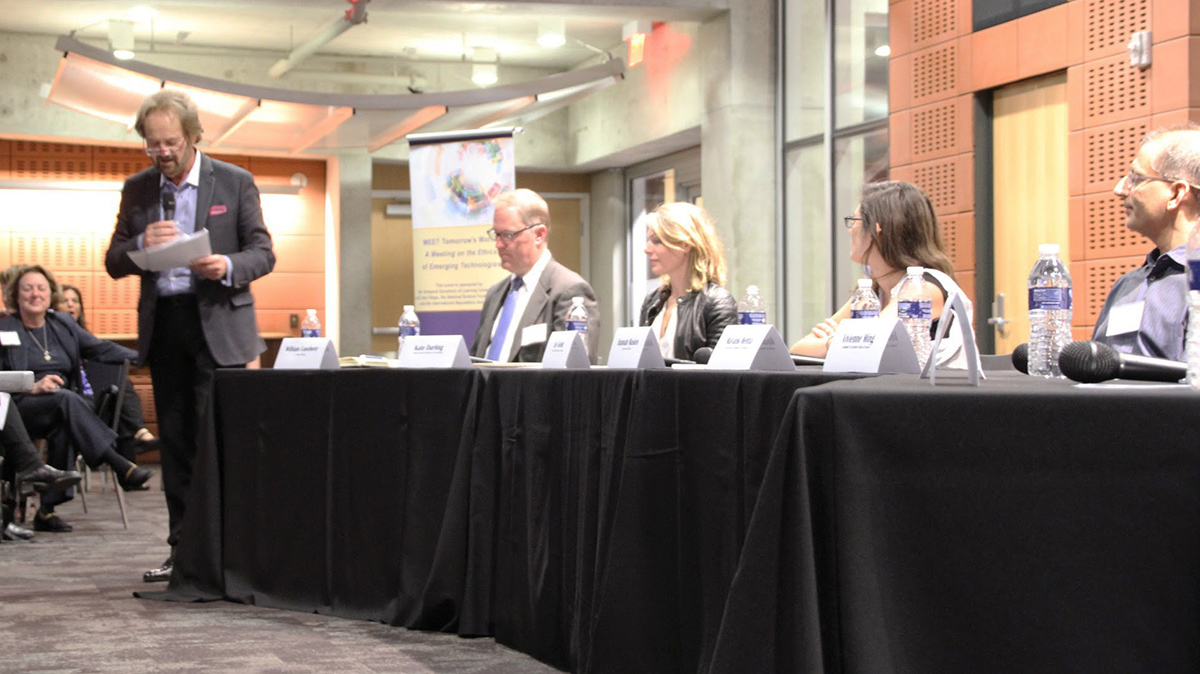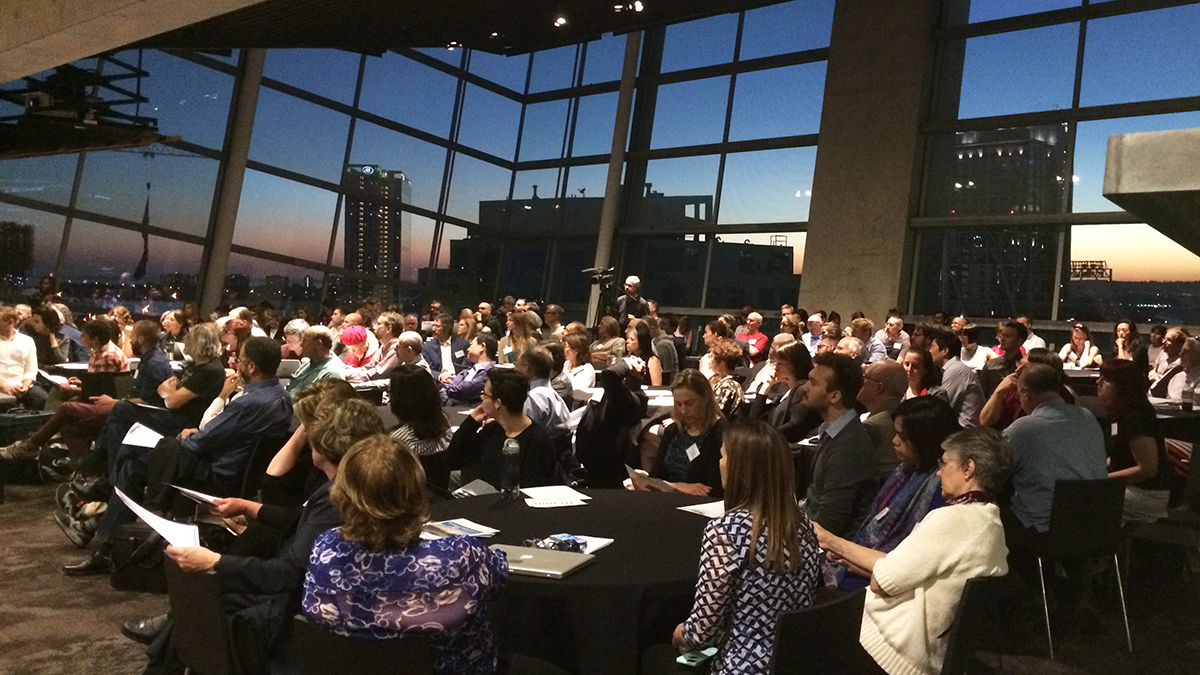Meet Tomorrow's World: A Meeting on the Ethics of Emerging Technologies
Panelists from left to right: Roger Bingham, William D. Casebeer, Kate Darling, Hannah Maslen and Mayank Mehta. William D. Casebeer, career intelligence analyst and Lieutenant Colonel in the US, Air Force proposed an interesting analogy between pervasive technology and the art of storytelling to show how technology could be actually used, in the near future, to raise empathy, deliver personalized experiences and facilitate human interaction. Kate Darling, MIT Media Lab, observed that people often treat robots as being alive. That, she argued, is because robots embody physicality and movement. This phenomenon shows that robots can be used effectively for therapy, assistance and social interaction, but raises the risk of manipulation. Similar risks of physical-digital conflation were addressed by Professor Mayank Mehta (University of California, Los Angeles) explained how space-mapping neurons in the brain react differently to virtual reality (VR) than they do to real-world environments. VR and assistive robotics do not only raise the risk of eroding our awareness of the physical-digital distinction, but raise privacy and identity concerns too. Critical ethical questions were analyzed by Hannah Maslen and Julian Savulescu of the University of Oxford. Maslen introduced the idea of a child’s “right to future openness” to emphasize the duty of parents to keep a sufficient number of options open for their children. Savulescu underlined the role of human morality in enabling social interaction within groups. Technology can be co-opted as an efficient tool to achieve these prosocial goals. Such process of enhancement, however, may cause structural transformations to critical aspects of our modern societies, including to the political dimension. The panelists were generally optimistic about future advancements in technological innovation and dissemination. However, they called for a co-operative effort to anticipate the ethical and social implications of emerging technologies and open a public debate on these issues. It is now up to all of us to shape the technological future we want to live in. 
Public Program audience and background sunset from the Shipley Special Events Suite at the San Diego Central Public Library. – Marcello Ienca, University of Basel, Switzerland |
